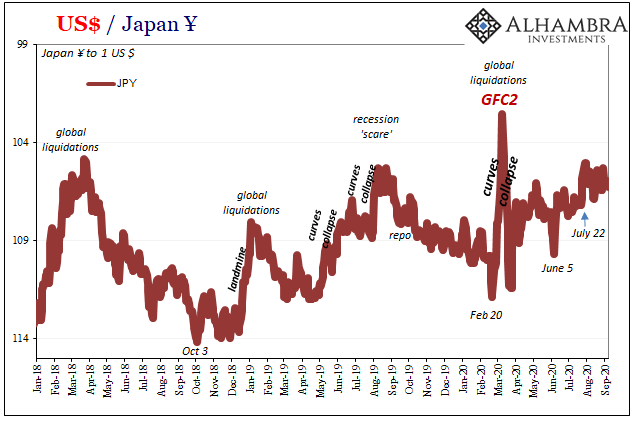 The US dollar starts what promises to be an eventful week giving back some the gains score in second half of last week against the euro and yen. Equity markets are extending their pre-weekend losses. Commodities are also trading with a heavier bias. Markets in Australia, New Zealand, and Italy are closed for national holidays.
The US dollar starts what promises to be an eventful week giving back some the gains score in second half of last week against the euro and yen. Equity markets are extending their pre-weekend losses. Commodities are also trading with a heavier bias. Markets in Australia, New Zealand, and Italy are closed for national holidays.The consolidative tone may not be very surprising give the data to be released in the coming days and the FOMC and BOJ meetings. Investors will see the first estimates of UK, EMU, and US GDP. The CPI measures for the EMU and Japan will be updated, as will the inflation measure the Fed targets (core PCE deflator). At the end of the week, DBRS will update its rating of Portugal’s credit. It is the only one of the four rating agencies that the ECB includes that gives Portugal an investment grade rating. If DBRS takes it away, Portugal will join Cyprus and Greece as not qualifying for the ECB’s asset purchase program.
The MSCI Asia Pacific Index was off o.4%, its second consecutive losing session and the fourth of the past six. That follows an eight-session advance starting April 6 and ending last Monday, April 18. A four-month high as reached on April 21. Europe’s Dow Jones Stoxx 600 is off 0.7%, extending its decline for the third consecutive session. Energy and materials are leading the way lower, but financials are not far behind.
The mild corrective forces are also evident in the US Treasury market. The 10-year yield rose every session last week but is beginning the new week with a small pullback. Perhaps the heavier commodity prices, notably oil which is giving back its pre-weekend gain and copper snapping a five-day advance, has injected a note of caution as the yield approached 1.90%.
European bond yields are slightly lower, though Greece is an exception. Negotiations before the weekend failed to dispel the tensions. The fissures are within the officials creditors as well as between Greece and them. Some progress was reported. The drama has more time to play as Greece’s debt repayments to the IMF and ECB are not until the June-July period.
Separately, Portuguese bonds have underperformed over the past month, partly in anticipation of the DBRS decision later this week. The 10-year yield has risen 30 bp. The other peripheral country yields have also risen (e.g. Italy +18 bp, Spain +8 bp.
There are two news developments that are talking points today. First, the German IFO survey was disappointing. The current assessment unexpected deteriorated while expectations did not improve as much as had been anticipated. The business climate measure ticked down to 106.6 from 106.7. It has been expected to rise to 107.1 but matches the Q1 average.
Second, Austria’s anti-immigration nationalist Freedom Party handily won the first round of the presidential election with 35% of the vote. The failure to secure a majority necessitates a run-off election next month. The two main centrists parties, which now form the governing coalition each drew about 11% of the vote. This means that face-off will be between the Freedom Party and the Greens. Investors have not reacted very strongly. The Austrian 10-year is off a single basis point, in line with other core European bonds markets. The Austrian equity market is off 0.8%, led by a 2% decline in utilities
The euro slipped briefly below $1.1220 in early Asia and climbed to a high of almost $1.1265 in the European morning. The $1.1280 to $1.1310 area may cap corrective upticks. With the odds of Brexit seeming to ease sterling is holding in well after the pre-weekend advance. Bids were found near $1.4400. Last month’s high was set at almost $1.4515. The Japanese yen is the strongest of the majors, up 0.5% after losing almost 2.85% last week. The greenback found support in Asia and again in Europe by JPY111.00. It probably takes a break of the JPY110.70 area to signal anything noteworthy. Weaker commodity prices have weighed on the Australian and Canadian dollars which are largely flat.
The North American week begins with US March new homes sales. A modest 1.6% rise is expected after a 2.0% increase in February as sales are expected to continue to recoup the large 7% drop seen in January. Canada’s data, which features the February GDP report, is due later in the week (April 29), and the median (Bloomberg) expectation is for a small contraction.
Tags: Japanese yen,newslettersent






































